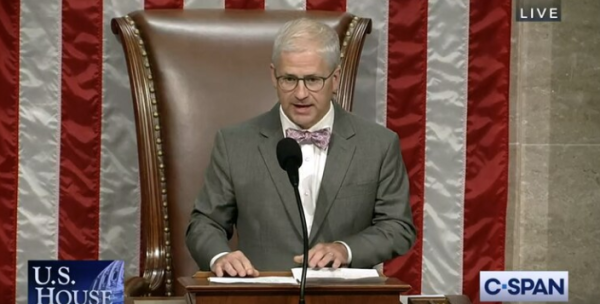
Signals of a political climate in the making at the start of the new political period and of a pre-election year are evident in the first poll – undertaken by GPO for “TA NEA – Weekend Edition” – in the wake of the monitoring of Nikos Androulakis by National Intelligence Agency-EYP. According to the nationwide survey, although New Democracy maintains its dominant position on the political spectrum, citizens are miffed by the government both for the wiretapping case and for its management, and are, at the same time, sending their own warning about what is to follow.
According to the nationwide survey carried out from August 22 to 24, the wiretapping case is already leaving its mark on a number of indicators (quantitative and qualitative), highlighting the first cracks in the relationship of trust between the government and the social majority that had been formed in previous years, primarily through the agenda of national issues and the management of the pandemic. The eavesdropping, in fact, is causing the first cracks in the prime minister’s profile as well, alongside a general erosion of the government’s position that is being recorded – and it remains to be seen soon, through the government’s manipulations, whether this trend will reverse or continue, raising questions concerning politics as well stability.
This “yellow card” shown the government results directly from voting intention, as New Democracy records losses of 1.7% compared to the corresponding GPO poll last July. The ruling party party maintains a large lead (6.3%) over SYRIZA, but its decline is notable. It is equally clear that the issue increased the vital space of PASOK-KINAL, which gains one unit and registers a percentage of 12.1%, while the gains of SYRIZA are limited (0.9%), also showing the suspicion of the social majority for the tactics and plans of the main opposition.
Energy and inflation
On the other hand, and contrary to what one might expect, the wiretapping issue is seen among those surveyed as the third (and not the first or second) most important of the country’s problem , behind electricity prices and high prices, in general, scoring higher, however, than Greek-Turkish relations, immigration and the pandemic. In any case, however, 68.6% of respondents consider the issue to be particularly important for political life, while those who appear indifferent are limited to 29.9% – despite all this, it is not the issue that will determine their next vote .
Popularity of leaders
The admission of Kyriakos Mitsotakis that he was unaware of the monitoring of Androulakis also tarnished the Prime Minister’s image. As recorded, 59.1% of respondents see the Prime Minister as being responsible, 56.4% judge his actions negatively, while 58.3% state that their trust in the government and the state has been shaken. At the same time, however, the image of the SYRIZA president’s actions is also negative.
The primacy of Kyriakos Mitsotakis, however, is not in doubt, as he remains the most popular political leader (with 48.3% of respondents having a positive opinion). In this table, significant gains are recorded for Nikos Androulakis, who climbs to second place (41.5%), overtaking Alexis Tsipras (37.2%).
The day after the wiretapping
By Antonis Papagyris
After three years of government, the issue of surveillance is the first case whose origin and starting point concern the government core itself and the Prime Minister himself. Until now the crises (pandemic, energy, inflation) were characterized and resisted by the government camp as exogenous, global and imported. And their management to a certain extent was considered by the majority to be sufficient or even successful in some cases. Comparisons with the previous government produced a positive balance and the citizens recognized or even rewarded the current government’s effort to manage them in a rational and efficient manner, despite omissions.
The case of telephone tapping has raised a series of questions, causing embarrassment within New Democracy and hurting Mr. Mitsotakis’ prime ministerial profile, as 59.1% believe that the Prime Minister is responsible.
His statement did not convince public opinion and the question now is whether this specific case can affect political relations at a time when for the vast majority of citizens the main issues remain the energy crisis, increases in electricity bills and inflationary pressures on family budgets.
All the above taken together and coming to the hard political index of voting intention, New Democracy is registering a percentage of 31.4%, down by 1.7% compared to the last GPO measurement, while SYRIZA increases its percentage by about one point to 25 .1%, with the difference between the two parties now standing at 6.3 percentage points. PASOK shows an increase and is at 12.1%, while the percentages of the other party formations are relatively stable.
In this difficult juncture the ruling faction continues to maintain its supremacy, with the main opposition, however, feeling that it is now within firing distance while no one can know what other surprises the development of the case may bring. For his part, Nikos Androulakis has justified in the most emphatic and convincing way his strategic choice of non-cooperation with the New Democracy of K. Mitsotakis and expects to reap the displeasure of centrist voters.
K. Mitsotakis has proven that he is a politician who is in tune with popular sentiment, listens to social processes and can translate them into political choices. During his prime ministership he has avoided emotional involvement, he does not operate paternalistically, but always tries to provide solutions to the issues that arise through a technocratic route.
The big difference now is that the issue is about him and his relationship of trust with the electorate.
Antonis Papargyris is director of GPO Research
Latest News

Airbnb: Greece’s Short-Term Rentals Dip in March Amid Easter Shift
Data from analytics firm AirDNA shows that average occupancy for short-term rentals dropped to 45% in March, down from 49% the same month last year.

Easter Week in Greece: Holy Friday in Orthodoxy Today
At the Vespers service on Friday evening the image of Christ is removed from the Cross and wrapped in a white cloth

Meloni and Trump Meet in Washington, Vow to Strengthen Western Ties
“I am 100% sure there will be no problems reaching a deal on tariffs with the EU—none whatsoever,” Trump stressed.

ECB Cuts Interest Rates by 25 Basis Points in Expected Move
The ECB’s Governing Council opted to lower the deposit facility rate—the benchmark for signaling monetary policy direction—citing an updated assessment of inflation prospects, the dynamics of underlying inflation, and the strength of monetary policy transmission.

Current Account Deficit Fell by €573.2ml Feb. 2025: BoG
The improvement of Greece’s current account was mainly attributed to a more robust balance of goods and, to a lesser extent, an improved primary income account

Hellenic Food Authority Issues Food Safety Tips for Easter
Food safety tips on how to make sure your lamb has been properly inspected and your eggs stay fresh.

Greek Kiwifruit Exports Smash 200,000-Ton Mark, Setting New Record
According to data by the Association of Greek Fruit, Vegetable and Juice Exporters, Incofruit Hellas, between September 1, 2024, and April 17, 2025, kiwifruit exports increased by 14.2%.

Easter Tourism Boom: Greece Sees 18.3% Surge in Hotel Bookings
Among foreign markets, Israel has emerged as the biggest growth driver, with hotel bookings more than doubling—up 178.5% year-on-year.

Greece to Launch Fast-Track Tender for Offshore Hydrocarbon Exploration
Last week, Papastavrou signed the acceptance of interest for the two Cretan blocks, while similar decisions regarding the two Ionian Sea blocks were signed by his predecessor

American-Hellenic Chamber of Commerce to Open Washington D.C. Branch
AmCham's new office aims aims to deepen U.S.-Greece economic ties and promote investment and innovation between the two countries







![Πλημμύρες: Σημειώθηκαν σε επίπεδα ρεκόρ στην Ευρώπη το 2024 [γράφημα]](https://www.ot.gr/wp-content/uploads/2025/04/FLOOD_HUNGRY-90x90.jpg)




![Airbnb: Πτωτικά κινήθηκε η ζήτηση τον Μάρτιο – Τι δείχνουν τα στοιχεία [γράφημα]](https://www.ot.gr/wp-content/uploads/2024/07/airbnb-gba8e58468_1280-1-90x90.jpg)

























![Airbnb: Πτωτικά κινήθηκε η ζήτηση τον Μάρτιο – Τι δείχνουν τα στοιχεία [γράφημα]](https://www.ot.gr/wp-content/uploads/2024/07/airbnb-gba8e58468_1280-1-600x500.jpg)


 Αριθμός Πιστοποίησης
Αριθμός Πιστοποίησης